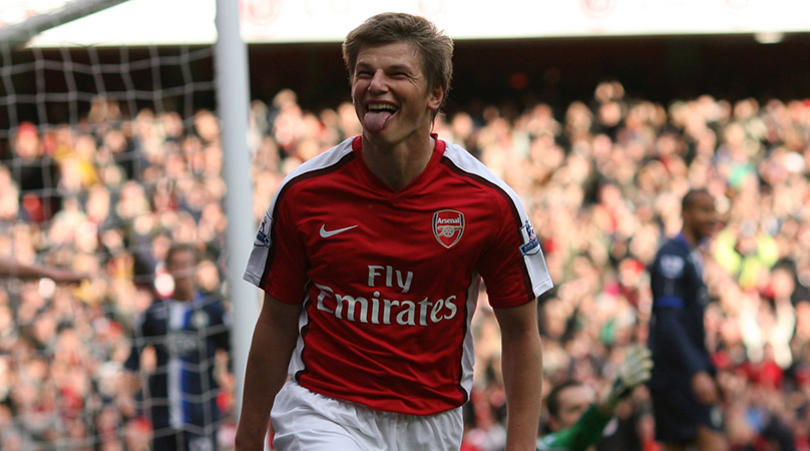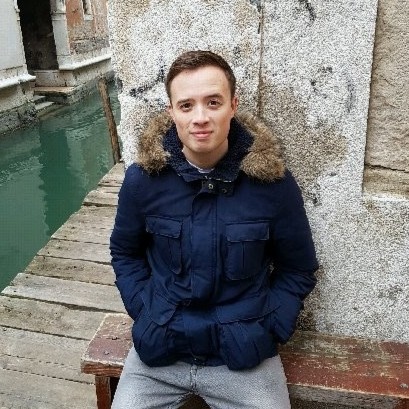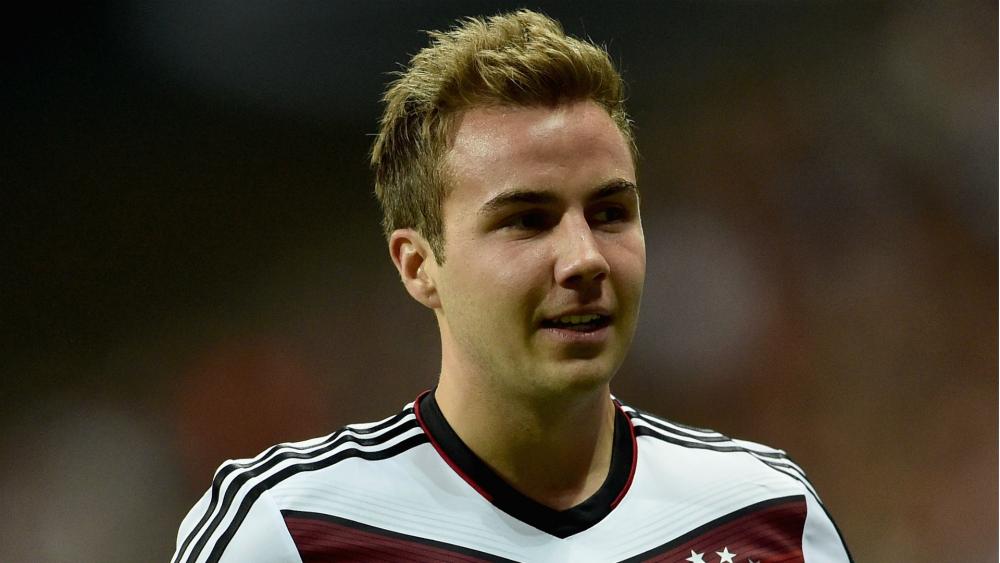Kidnap, raids and mayonnaise: how Leon Bailey fought for his giant dream – and made it to the top
Nothing has halted the Jamaican's rise to becoming one of Europe's hottest properties – and it's not just cattle keeping tabs on the 21-year-old Bayer Leverkusen star's next mooooooooove
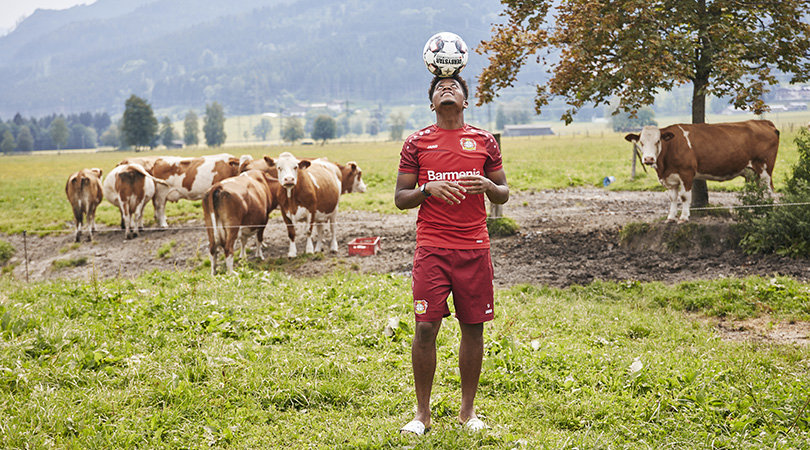
The sounds and smells of cows grazing in an adjacent field are more than a little distracting. Leon Bailey is taking a moment to reflect on the journey that has carried him from a childhood in the Caribbean to becoming one of Europe’s most talked-about young footballers.
“This was the first place we came to,” the Jamaican tells FFT, craning his neck to look at the picturesque mountains of Kaprun, Austria.
This may seem an unusual location to meet a Kingston-born Bayer Leverkusen starlet, but as well as playing host to the German club’s training camp, the scenic spot is also not too far from Bailey’s first European home. Of many.
He’s still just 21, yet Bailey has already been on a long and winding road to the Bundesliga; a journey that has not only taken in Austria, Belgium, Slovakia and Germany, but included international disputes, government raids – and even the occasional kidnapping.
His story is complicated, but the goal has always been the opposite: Europe had the clubs that could offer him and adoptive brothers Kyle and Kevaughn environments capable of nurturing their precocious talent through teendom and beyond. Bailey was 12 when adoptive dad (and now agent) Craig Butler took him and his two brothers from Kingston, Jamaica on a globe-trotting adventure. He hasn’t looked back since.
It was right here in Austria where they began – Salzburg, precisely, 40 miles away from the cattle-strewn field in which FourFourTwo is photographing Bailey. You’d never know it from the relaxed demeanour of all involved – cows included – but the young prodigy has already been through far more than the average human experiences in a lifetime.
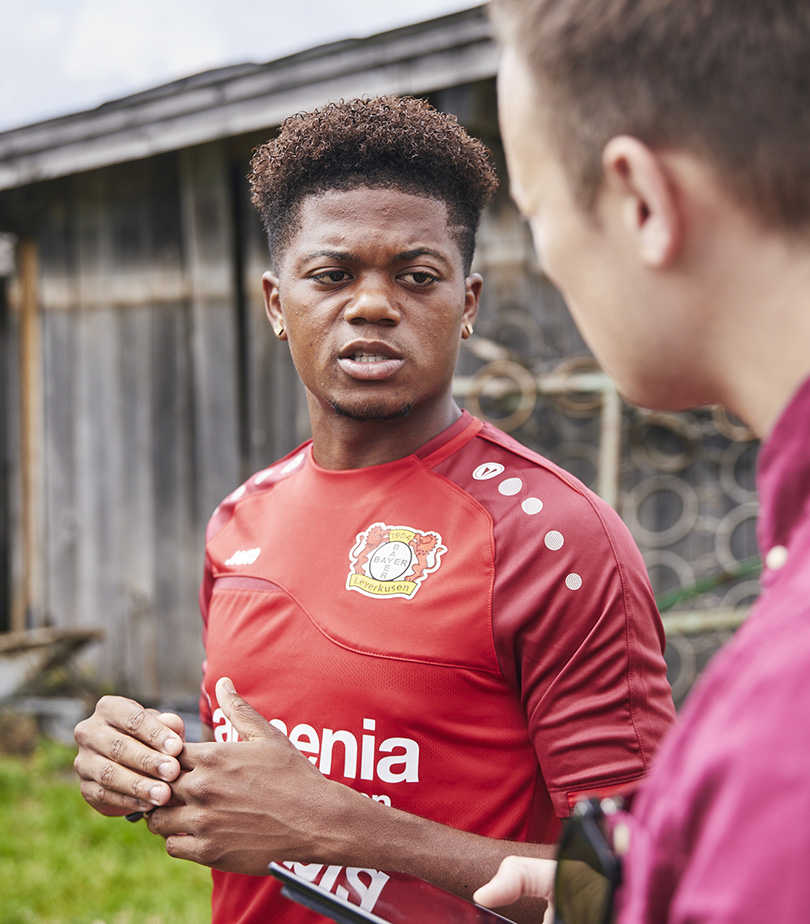
Imagine the scenario: one bag for four people’s possessions. A tin of tuna, mayonnaise and bread for dinner, shared. A hostel. A bus. A muddy field. Yet another hostel. Repeat. Over and over.
Get FourFourTwo Newsletter
The best features, fun and footballing quizzes, straight to your inbox every week.
Salzburg in February wasn’t like Kingston, but it was the first stop on Butler and his boys’ European tour, the setting for their first taste of rejection after initially begging for a trial at Red Bull Salzburg.
It was freezing cold, and the youngsters weren’t prepared for such conditions. It was hardly the start to life in Europe any of them had hoped for.
Butler knew that his boys had talent from his time in charge of the Phoenix All-Star Academy in Jamaica; half amateur football school, half foster home for lads in need of familial support. Bailey had lived with Butler since he was about five, and was one of around 20 kids his father adopted over time.
Just getting to Europe was challenging enough – Butler flogged his home and car to help fund the academy, and relied on a donation of 1 million Jamaican dollars (around £6,000) from a benevolent friend to finance his dream. Despite such generosity, making ends meet in a foreign land was almost impossible at times.
“It was so difficult, that I can tell you – one of the hardest, toughest parts of my life,” Bailey tells FFT, reflecting on the early stages of his incredible journey. “It taught me so much, and it was the first time I’d really travelled anywhere, especially to a country that was so cold. I’d never experienced anything like that kind of weather before. When we came here it was freezing, and probably the worst time of my life. We had to adapt, and at first we didn’t have warm enough clothes to train in. It was a difficult period for us.”
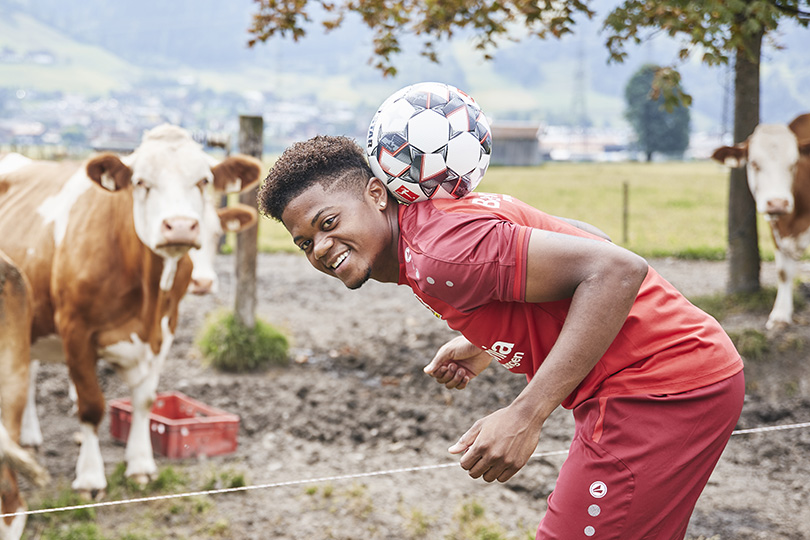
But there was still that dream to chase, and the Jamaicans weren’t going to leave their unfamiliar climes without making it somewhere. They had a vision, but not a plan: if they had to walk, they would, and if they had to knock on doors to earn a trial, so be it. Bailey didn’t see his mother for four years until a paperwork issue forced him to return to his homeland aged 17. But what Leon did have was his brothers; though not related by blood, they stayed fiercely loyal to one another as they pursued their shared ambition.
“We were living in hotels, motels, at the academies of some teams – various different places,” admits Bailey. “We just had this strong bond with each other; the whole Phoenix family since we were kids. I grew up with all of them in the same house and we shared everything with each other. We did everything together as a family, so that’s why my bond with them remains strong. We always say, ‘blood doesn’t make you family’, because it’s true.”
Although Salzburg decided against signing them, Bailey and his brothers wound up at USK Anif, one of the Austrian side’s feeder clubs. Reports – unverified – suggest the starlet scored 75 goals in just 16 games for their under-15s in 2011/12.
All the while, the exciting youngster and his siblings were picking up new trials around Austria and beyond. A 2012 YouTube clip shows an angelic, 14-year-old Bailey introducing himself to camera during an invite-only training match for Salzburg’s brightest prospects. He was getting noticed – not only in Austria, but Belgium and the Netherlands too, with Genk and Ajax both monitoring his progress.
In 2012, Genk took up Butler’s offer on his three boys. It was Leon they were really after, but Butler wanted his family to stick together and insisted the Belgians took them all with his continued supervision. But just as things were starting to look up for the Jamaicans, they quickly took a dark turn for the worst.
Craig had disappeared. Leon and his adoptive siblings – as well as older brother Travis – were left to fend for themselves in Belgium, with Genk keeping a close eye on their welfare.
Butler had flown to Mexico on business, partly to help finalise some paperwork that would ratify Bailey’s place at Genk (as a 15-year-old, he was unable to legally sign a contract with the club). But while there, however, Butler claimed he was attacked, robbed and held captive, before eventually being released into the desert without a penny on his person. Genk, with no idea where he was for four months, quickly stepped in to provide for the boys in their moment of despair.
“It wasn’t a healthy situation, but to prevent them all from walking around on the streets, we made sure that they could go to school and that they could train with us,” Genk’s then-technical director Gunter Jacob said at the time.
“He was walking along with his briefcase like any other businessman, in the wrong place at the wrong time,” explains Bailey, reflecting on a part of his life he would rather not revisit. “It was a while before we realised what had happened to him.
“We actually had a house [in Belgium] by then, and my big brother was taking care of everyone. He’s five years older than me, but it was basically four of us – me, Kyle, Kevaughn and Travis – at home taking care of ourselves. At that point we knew how to look after each other – we were well prepared even before coming to Europe.”
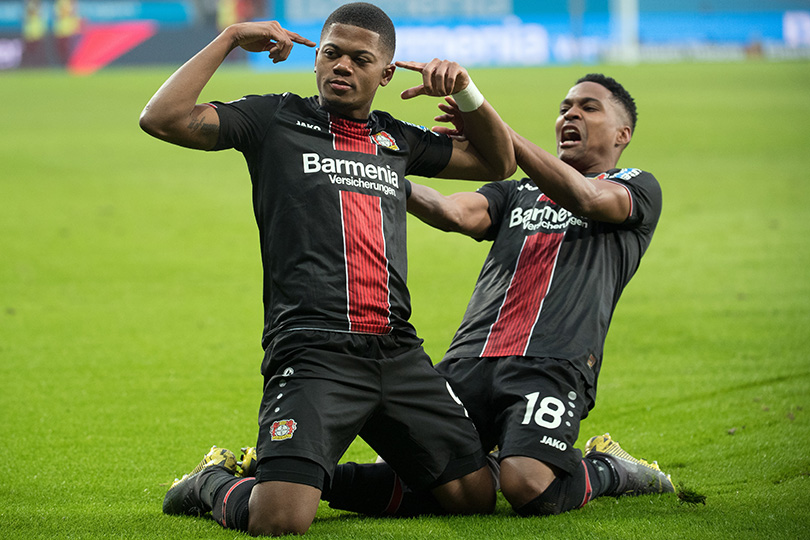
It’s little wonder that Bailey looks back with such pride at what he’s managed to achieve.
“When l reflect on everything I’ve been through, it’s just… wow,” he says, taking a moment to gather his thoughts. “I’ve gone through so much in my life already and deserve to be where I am because of the sacrifices I’ve made. There have been years when I’ve had to be away from my family, just working incredibly hard and trying to become the person I wanted to be.”
By the time Butler returned to Belgium, he was broke. With nowhere else to turn, Genk helped him get a job with one of their sponsors, but his residency was twice rejected by the authorities.
The country’s Labour Ministry caught wind of the potentially shady situation and raided Genk, though Butler had fallen out with the club anyway about the non-existent prospect of a more solidified affiliation with the Phoenix All-Star Academy. Bailey was the commodity they wanted but couldn’t get. The boys left.
Standard Liege pledged the Phoenix partnership that Butler craved, infuriating Genk. Directors of the latter refused to attend a meeting of the G5 – Belgium’s five biggest clubs – and chairman Herbert Houben publicly raged at counterpart Roland Duchatelet. Not that it mattered: Butler still couldn’t secure his work permit, so the Jamaicans were forced to head home.
By February 2015, they were back in Europe. Bailey was 17 and Ajax were keen to recruit him, but still couldn’t tie him down professionally because of his age. Instead, Leon and Kyle signed for a feeder club – Slovakia’s Trencin, owned by Tschen La Ling, a former team-mate of Johan Cruyff. They never reached Amsterdam. “We were only at Trencin for a few months,” says Bailey. “The people at Ajax fell out and it never happened.” Genk swooped in August, Bailey by then 18.
It didn’t take long for him to make a big impression in KRC’s first team. In fact, by the end of his maiden campaign in 2015/16, he was already something of a cult hero after scoring one of Genk’s most important goals of the season.
Anderlecht’s goalkeeper never saw it coming. Silvio Proto was beaten the moment Genk’s 18-year-old sensation sliced his boot through the ball on the edge of the penalty box, with just a few seconds of the first half remaining. Bailey, by then crowned Belgium’s Young Professional Footballer of the Year, had dragged his team level with a moment of magic – his seventh goal of the season – to keep their Europa League qualification hopes alive.
Drawing 1-1 at the break and trailing 2-1 after an hour, Genk went on to win that game 5-2, Bailey teeing up his side’s second equaliser for Thomas Buffel and then watching on as De Smurfen took charge. They eventually secured Europa League football for 2016/17, in which group-stage goals against Rapid Vienna, Sassuolo and Athletic Bilbao put Bailey on the map and Genk in the knockout stages. They went on to reach the last eight, exiting to Celta Vigo.
Tongues across Europe wagged, and not for the first time. When Bailey had finally penned that first professional contract with Genk in August 2015 – crucially, his former youth team coach Dimitri de Conde had been promoted as KRC’s technical director this time – they had beaten not only Ajax, but also Chelsea, to recapture the youngster they’d wanted so badly.
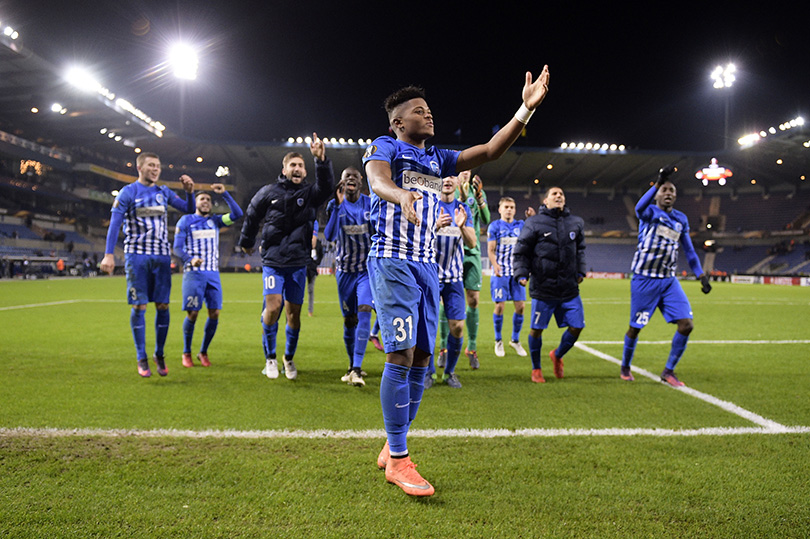
“Those rumours are true – Chelsea have been interested in me since I was maybe 14 or 15,” shrugs Bailey. “But as a young player you want to start on a normal level and not just go there because of the name of the club. You want to develop in the right environment; around the right minds and mentality.
“Genk was right for me at that moment – I fitted right into the youth system perfectly. That’s where I wanted to start, so I went for it.
“I didn’t expect to settle so quickly into the first team, though. As a young player coming in you never think you’ll be established so fast. I mean, I never doubted my talent and that was something I always believe in no matter what. I know I have talent and I know what I can do, so whenever I get opportunities I’ll take them.”
Nor were the Blues the last Premier League club whose overtures Bailey has turned down. When the time finally came for the Jamaican to leave Genk in January 2017, following another excellent domestic half-season to go with his Europa League group stage form, he had his pick of Europe’s elite sides. The starlet chose Bayer Leverkusen, who signed him six months earlier than planned, for €20m.
“Manchester United, Manchester City, Chelsea, Liverpool – a lot of clubs were interested,” reveals Bailey. “But the most important thing as a pro is taking things a step at a time and not rushing to the top too quickly. Because once you get there, where do you go next?
“I believe the right timing is important, and it was the right moment to be at Bayer Leverkusen. They are a tremendous club with so much history. A lot of good players have come from there; they can get into the Champions League and are always doing well. So why not them? It was the perfect move for me and I’m happy I made it.”
So happy, in fact, that in August 2018, Bailey signed a contract extension through to 2023. “My focus isn’t really on moving anywhere yet,” he insists, despite continued speculation that he could be spirited away to Bayern Munich or from the Bundesliga entirely by England’s bright lights and big bucks. “I’m just about what’s happening right now rather than what could happen in the future. I’m still learning.”
ICYMI
A disgusting weekend for @bayer04_en's Leon Bailey
( @btsportfootball)pic.twitter.com/JDfPY4iKgR— FourFourTwo (@FourFourTwo) February 4, 2019
And last season was certainly a learning curve. By his 22nd game of 2017/18, Bailey had scored 11 goals for Die Werkself and laid on five more for this team-mates. They were impressive figures for a player still getting to grips with top-level football – particularly one who, despite wearing the Bundesliga outfit’s No.9 shirt, mostly plays on either the left or right flank.
By May, however, Bailey had added just once to each tally, having struggled to maintain his stellar early-season form for the duration of the campaign. This year has also been a struggle: Bailey’s thunderbolt free-kick which sunk Bayern Munich at the weekend was only his second league goal of the campaign.
“It was probably one of the best seasons I’ve had since becoming a professional,” claims the 21-year-old, despite that drop-off. “It’s an accomplishment I’ve dreamed of, I gained a lot of experience and it’s motivated me to achieve more. Now I have to stay focused on doing even better than before.”
Luckily, Bailey has some useful role models to keep him grounded – two of Kingston’s finest products in eight-time Olympic gold medalist Usain Bolt and Manchester City speedster Raheem Sterling, both of whom Bailey calls friends.
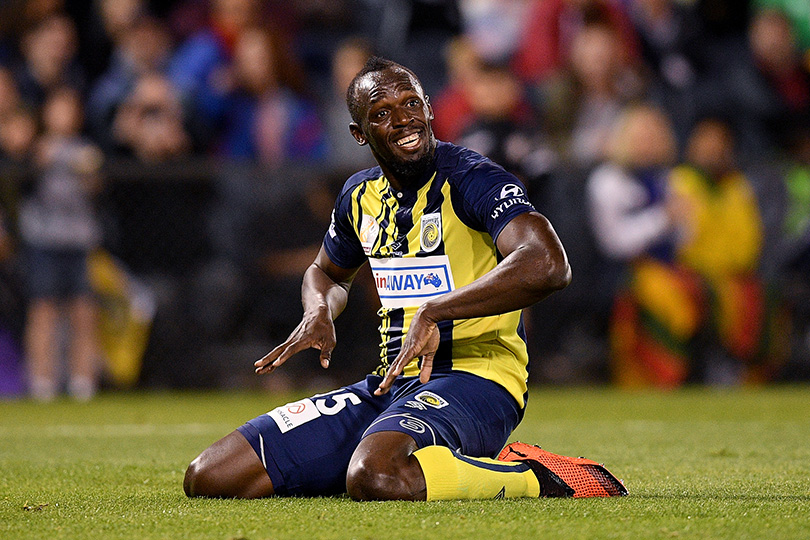
“Usain is a very, very good friend,” says Bailey, bursting into a huge grin. “We play football together, we go to the beach together, and we hang out and go to parties together. He’s a good person – I’ve known him for a couple of years. The first time I met him was on the football field, actually. He’s a good player, honestly! He’s tall, he’s big, so he’s kind of slow on the ball, but he can do his thing.
“Raheem is back in Jamaica regularly; I’ve known him for about five years, so before I was a pro. I used to look up to him and be like, ‘Yeah, he’s one of us’. Whenever he was there we used to hang out and chill together, so that’s basically how we started.
“One of my close friends from childhood brought him to meet me one day, when I was coming back from Phoenix training. From there we became great friends and got so attached because of football. I wanted to learn so much from him.
“Then I went on my path and started doing what I do, so obviously he started to see that I had talent. It brought us even closer together. Now we’re the two main faces of Jamaican football, I guess.”
Bailey’s clearly a proud Jamaican, despite not yet representing the country of his birth at international level. The Leverkusen starlet’s international future remains a source of fierce debate back home – he played one match for their U23s, scoring a free-kick against the Cayman Islands in 2015 – and rumours abound that he could eventually play for Belgium, Germany or even England.
Jamaica have tried to cap him, but Bailey – and particularly his father Butler, who divides opinion in the Caribbean and regularly butts heads with federation president Michael Ricketts (no, not that one) – has his issues with the JFF. So what would have to change?
“Everything,” he admits glumly. “The thing is, I love my country, but as an individual, my dream is to become one of the best footballers in the world. To do that I need to play at a high international level, and I can’t do that by representing Jamaica.
“It means I’ve got to play for a country that would push my name onto a different platform, so that’s why I don’t think Jamaica is the best option for me.”
His situation, however, is constantly changing. In October, Bailey accepted a Reggae Boyz call-up, only to pull out when the JFF “didn’t keep their end” in also selecting brother Kyle. But Jamaica may be Bailey’s only option: to gain Belgian citizenship, one must reside there for five consecutive years, while in Germany it’s a minimum of six. England could be a closed avenue completely: his link comes via adoptive family, which will likely make him ineligible.
For Bailey, however, unusual obstacles are par for the course. It’s less than nine years since the 21-year-old left the Caribbean with nothing but ambition to his name. He’s right where he wants to be.
“Here I am today as a professional,” he states. “I’ve been across so many different countries and experienced so many different cultures at such a young age. I’ve had to be strong to go through all of that – now I’m here, I’m really grateful for it. I’m proud of where I started, where I came from and where I’m going.”
It certainly beats tuna and mayonnaise for dinner.
This feature originally appeared in the December 2018 issue of FourFourTwo. Subscribe!
Joe was the Deputy Editor at FourFourTwo until 2022, having risen through the FFT academy and been on the brand since 2013 in various capacities.
By weekend and frustrating midweek night he is a Leicester City fan, and in 2020 co-wrote the autobiography of former Foxes winger Matt Piper – subsequently listed for both the Telegraph and William Hill Sports Book of the Year awards.
